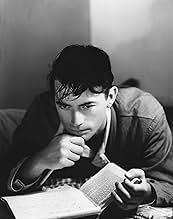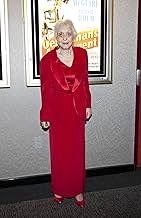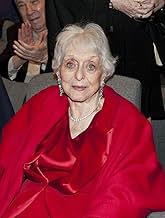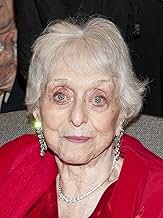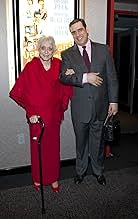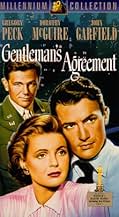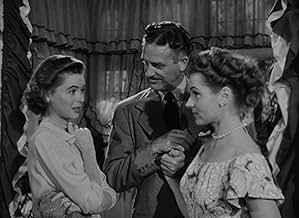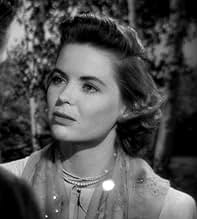Un giornalista finge di essere ebreo per raccontare una storia sull'antisemitismo e scopre personalmente le vere profondità del bigottismo e dell'odio.Un giornalista finge di essere ebreo per raccontare una storia sull'antisemitismo e scopre personalmente le vere profondità del bigottismo e dell'odio.Un giornalista finge di essere ebreo per raccontare una storia sull'antisemitismo e scopre personalmente le vere profondità del bigottismo e dell'odio.
- Regia
- Sceneggiatura
- Star
- Vincitore di 3 Oscar
- 17 vittorie e 9 candidature totali
- Bill Payson
- (as Ransom M. Sherman)
- Waiter
- (non citato nei titoli originali)
- Nightclub Patron
- (non citato nei titoli originali)
- Mother
- (non citato nei titoli originali)
Recensioni in evidenza
Released the same year and touching on the same subject was Edward Dmytryk's Crossfire, which dealt with anti-Semitism at its extremes: murder with anti-Semitism as the motive. Gentleman's Agreement takes a more humanistic and subtle approach--one that is too subtle at times. Where Crossfire dropped the bomb of anti-Semitism into the laps of the audience, Gentleman's Agreement gives it to you in periodic shots in the arm in the form of a sermon, and each one says the exact same thing: anti-Semitism is bad. (But we knew that.) Yes, the message is an important one, but feeding it to the audience in a manner that is literally shoving it down our throats every few minutes doesn't help the digestion any.
Also lacking in Gentleman's Agreement is a three-dimensional protagonist. Peck's crusading writer who masquerades as a Jew is simply too zealous and unswerving for his own good. He has no faults, no inner conflicts and no doubts about himself. Whether he's being shunned by bigots or Dorothy McGuire, he's such a straight-shooter you know what he's going to do before he does: the right thing right away.
There's no real dramatic arc in the story, with the entire weight of the movie resting on the torrid on-again-off-again love affair between Peck and McGuire. She symbolizes the hypocrisy and passiveness of the everyday American on anti-Semitism, and he points it out to her every chance he gets-and that's all. It pretty much rambles on the same dramatic level all throughout the picture, dividing its time between love scenes and sermons, most of which are indistinguishable from one another.
In the end, the important message and the overall entertainment value of the picture suffers from this redundancy.
An interesting and rabid attractive drama in which a reporter pretends to be a Jewish in order to cover a story on anti-Semitism , only to find the masquerade entailing a backlash of grief and pressure for himself and his own family . Archetypical Hollywood social comment and the 20th Century Fox studio's fondness for realism looks remarkable dated in places . However , relying heavily for complicated loving relationships , tension and on a handful of attractive dramatic pieces and offering an important analysis of the problem . This sentimental and muddled film was Hollywood's first major attack on anti-Semitism. A successful movie that received 8 Oscar nominations and three wins, including Kazan's first for Best Director. Gregory Peck gives a terrific acting in an upright role similar to Atticus Finch , he is a journalist who has to deal with both overt and covert prejudice . John Garfield has a small but essential role as Phil's Jewish friend Dave . Starring Gregory Peck and Dorothy McGuire are accompanied by a very good support cast , such as : Celeste Holm , Anne Revere , June Havoc , Albert Dekker , Jane Wyatt , Dean Stockwell and Sam Jaffe.
The film was compellingly made by Elia Kazan who did not get along with actor Gregory Peck ; as usual Kazan dealing with thoughful and provoking issues . In fact , his films were concerned with personal or social issues of special concern to him. Kazan writes, "I don't move unless I have some empathy with the basic theme." And this first such "issue" film was Gentleman's agreement (1947). It was followed by Pinky (1949), one of the first films in mainstream Hollywood to address racial prejudice against black people. A streetcar named Desire (1951), an adaptation of the stage play which he had also directed, received 12 Oscar nominations, winning four, and was Marlon Brando's breakthrough role. In 1954, he directed On the waterfront (1954), a film about union corruption on the New York harbor waterfront. In 1955, he directed John Steinbeck's East of Eden (1955), which introduced James Dean to movie audiences. Rating : 6.5/10 .Notable . Controversial in its day , yet still timely .
However, this movie has lessons that every new generation should learn.
The lessons taught in this movie can be applied to other forms of prejudices such as sexism, racism, and homophobia among others.
Our society today is still full of "nice" people who detest bigotry and intolerance, but stand idly by while it happens right in from of them. Watching this movie could change all that.
Anyway now to the plot. Phillip Green (Gregory Peck) is a writer who pretends to be Jewish to find out about anti-Semitism. Through this, he learns how much people discriminate against Jews and it affects him deeply and changes his life.
I was never bored in this film. I am forever fascinated by Peck, who I've always remembered as Atticus Finch in To Kill a Mockingbird (1962). This is only the second film I've seen with Peck in his younger days (it's quite a pleasure watching him). Celeste Holm also is amazing and I love how she can laugh so easily very realistic. The only thing I wasn't satisfied with is the romantic choices by Peck's character. I wish he would have chosen the happy blonde Anne instead of the sappy, boring Kathy. Oh, how I was hoping he would choose Anne! Perhaps Dorothy McGuire was miscast; maybe someone else could have brought more energy to her character. John Garfield is fantastic as Green's Jewish friend.
This was ground breaking at the time and I really respect the people who participated in this film for taking a risk. Despite being made almost 60 years ago, I have not only learned from it but enjoyed it. Yes, there are some inaccuracies and plot holes, but I don't particularly care and it doesn't distract me. It's a great film, go see it.
Oscars Best Picture Winners, Ranked
Oscars Best Picture Winners, Ranked
Lo sapevi?
- QuizIn 1984 Gregory Peck claimed to have been misquoted in a 1967 interview in which he said Elia Kazan was the wrong director for the film. The actor said, "That's a misunderstanding. I don't think there could have been a better director for the film. What I meant was that he and I didn't have a rapport; emotionally, we were not on the same wave length. I don't think that I did my best work for him. If I worked with him now--as a mature man--I think I would give him everything he would want."
- BlooperEarly on, when Phil reminisces about his Jewish friend, Dave, he looks into the mirror and assesses his own features as being consistent with those of the Jews. This reveals his own experiences of having been influenced by the false stereotype of there being a "Jewish look". This is antithetical to his attacking anti-Semitic thoughts and actions in others, throughout the film. This, however, should not be considered a "GOOF" as many people are guilty of hypocrisy.
- Citazioni
Kathy Lacey: You think I'm an anti-Semite.
Phil Green: No, I don't. But I've come to see lots of nice people who hate it and deplore it and protest their own innocence, then help it along and wonder why it grows. People who would never beat up a Jew. People who think anti-Semitism is far away in some dark place with low-class morons. That's the biggest discovery I've made. The good people. The nice people.
- Curiosità sui creditiThe main title theme begins with the Fox logo, replacing the usual Alfred Newman fanfare.
- ConnessioniFeatured in Precious Images (1986)
I più visti
- How long is Gentleman's Agreement?Powered by Alexa
Dettagli
Botteghino
- Budget
- 1.985.000 USD (previsto)
- Tempo di esecuzione
- 1h 58min(118 min)
- Colore
- Proporzioni
- 1.37 : 1


